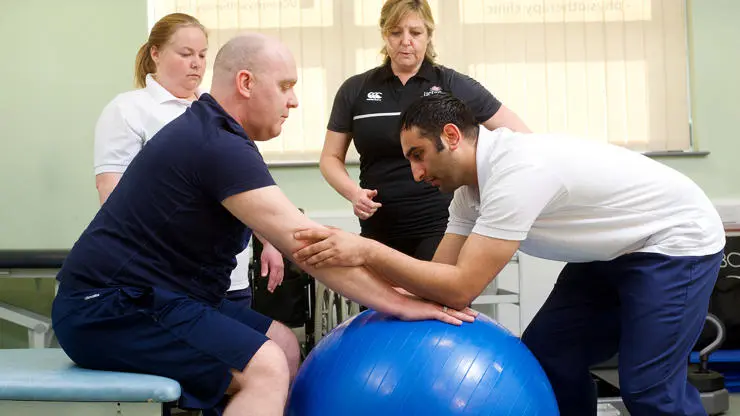What is physiotherapy?
Physiotherapy, also known as physical therapy, is a healthcare profession that focuses on restoring movement and function. Usually, this is for people affected by injury, illness, or disability. Physiotherapists use techniques including exercise, manual therapy, and education, to help patients manage pain, improve mobility, and prevent further injury.

How long does it take to become a physiotherapist in the UK?
In the UK, becoming a physiotherapist involves completing a three-year undergraduate degree programme. Some universities offer accelerated programs or integrated master's degrees, which may take longer.
After completing the degree, graduates need to register with the HCPC to practice as a physiotherapist in the UK. Our BSc (Hons) Physiotherapy course is approved by the HCPC, which means you can apply to register as soon as you graduate.
The process of becoming a physiotherapist in the UK usually takes around three to four years of full-time study, depending on the course and any additional requirements for registration.
Continuous Professional Development
Qualifying as a physiotherapist is just the beginning. To maintain competence and stay up to date with the latest developments, physiotherapists are required to engage in Continuous Professional Development (CPD) throughout their careers.
UCLan offers CPD courses tailored to the needs of physiotherapists, covering topics such as Managing Concussion in Sport or Leadership for Allied Health Professionals.
Specialisms in physiotherapy
There are lots of areas of physiotherapy to work in, allowing professionals to focus on the practice that match their interests. Some common specialisms include:
By following these steps to become a physiotherapist, you can start a career dedicated to enhancing the lives of others.

